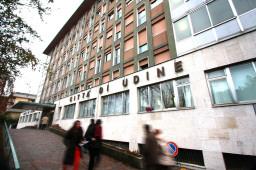Italy's supreme court on Thursday weighed in on a last-minute row over whether the father of a woman in an irreversible coma is entitled to allow her to die in accordance with a definitive court ruling.
The Cassation Court's deputy prosecutor general, Marcello Matera, said a guideline issued on Tuesday by Health Minister Maurizio Sacconi stating that the removal of feeding tubes from patients in a vegetative state was ''illegal'' was not relevant in the case of Eluana Englaro.
The supreme court last month confirmed a July ruling by the Milan Appeals Court that the feeding tube could be removed from 38-year-old Englaro, who has been in a permanent vegetative state for almost 17 years after a car accident.
''There is no doubt: the minister's guideline cannot interfere with the sentence being carried out,'' Matera said
''The guideline issued by the welfare minister is directed only to the administrative bodies of public and private hospitals and cannot thwart, in any way, the ruling of the Milan Appeals Court sentence''.
Matera added that in the event that no clinic is prepared to help Eluana end her life, it would be ''theoretically possible'' to ask the police to see that the sentence is carried out.
''That kind of step would be decided by the Englaro family lawyers,'' he said.
On Wednesday Milan Appeals Court judge Filippo Lamanna also said that the ruling was ''definitive'' and could not be legally challenged.
The president emeritus of Italy's Constitutional Court, Antonio Baldassare, told newspaper Corriere della Sera that Sacconi's guideline was ''valid for everyone except Eluana'' because of the specific ruling on her case.
UDINE CLINIC 'READY'.
A public-funded Udine clinic that has offered to help end Eluana's life repeated that it was ''ready'' to receive her on Thursday, but asked for guarantees that the Friuli-Venezia Giulia region would share the responsibility of the decision.
Sacconi suggested on Wednesday that there could be ''administrative consequences'' if the clinic did not follow the guideline, which some observers claimed was a veiled threat to strip it of its funding and certification.
Clinic director Claudio Riccobon on Thursday hit out at Sacconi for what he said were intimidatory tactics.
The Englaro family lawyer, Vittorio Angiolini, said he was confident that the region would confirm its support of the clinic.
''We'll clear this hurdle as well,'' he said.
The Lombardy region, where Eluana is currently cared for by nuns at Lecco's Beato Luigi Talamoni clinic, has always refused to offer clinics or health workers to help the woman die.
At the Udine clinic, around 25 doctors and nurses have volunteered to care for Eluana in shifts after her feeding tube is removed.
Doctors said it would take around two weeks before she died, as in the case of American Terry Schiavo, the severely brain-damaged Florida woman whose case sparked a worldwide debate over end-of-life issues.
Eluana was to have transferred to the clinic earlier this week but the family delayed the trip after Sacconi issued his guideline in order to clarify the clinic's legal position.
Eluana's father, Beppino Englaro, has been fighting for over ten years to earn the right to end his daughter's life in respect of what he says were her wishes.
The right-to-die ruling from the Cassation Court has split Italy, with Catholic politicians and the Vatican claiming it authorises euthanasia and libertarians hailing it as a victory for individual liberty.
Three Italian organisations representing 34 pro-life associations have meanwhile lodged an appeal with the European Court of Human Rights against the sentence.









